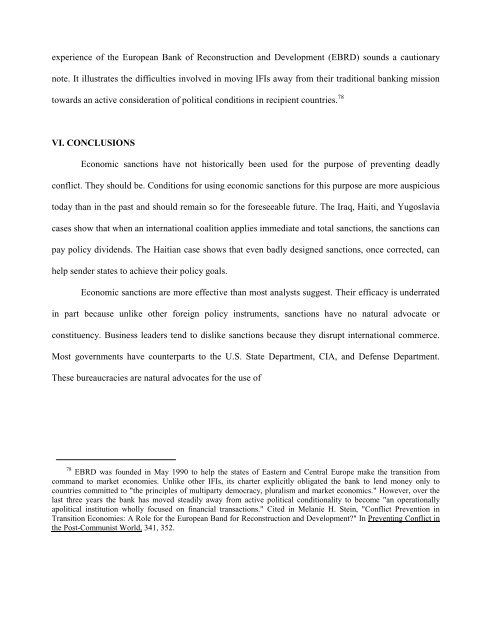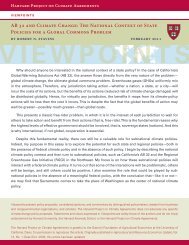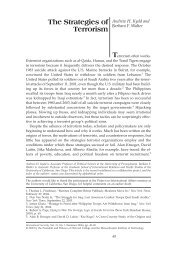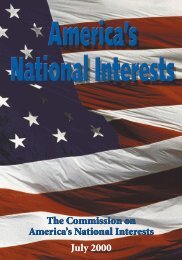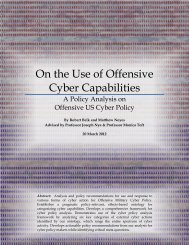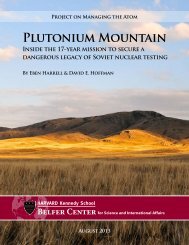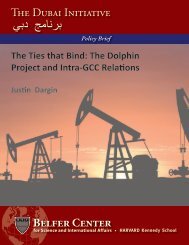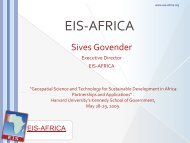Using Economic Sanctions to Prevent Deadly Conflict Elizabeth S ...
Using Economic Sanctions to Prevent Deadly Conflict Elizabeth S ...
Using Economic Sanctions to Prevent Deadly Conflict Elizabeth S ...
Create successful ePaper yourself
Turn your PDF publications into a flip-book with our unique Google optimized e-Paper software.
experience of the European Bank of Reconstruction and Development (EBRD) sounds a cautionarynote. It illustrates the difficulties involved in moving IFIs away from their traditional banking mission<strong>to</strong>wards an active consideration of political conditions in recipient countries. 78VI. CONCLUSIONS<strong>Economic</strong> sanctions have not his<strong>to</strong>rically been used for the purpose of preventing deadlyconflict. They should be. Conditions for using economic sanctions for this purpose are more auspicious<strong>to</strong>day than in the past and should remain so for the foreseeable future. The Iraq, Haiti, and Yugoslaviacases show that when an international coalition applies immediate and <strong>to</strong>tal sanctions, the sanctions canpay policy dividends. The Haitian case shows that even badly designed sanctions, once corrected, canhelp sender states <strong>to</strong> achieve their policy goals.<strong>Economic</strong> sanctions are more effective than most analysts suggest. Their efficacy is underratedin part because unlike other foreign policy instruments, sanctions have no natural advocate orconstituency. Business leaders tend <strong>to</strong> dislike sanctions because they disrupt international commerce.Most governments have counterparts <strong>to</strong> the U.S. State Department, CIA, and Defense Department.These bureaucracies are natural advocates for the use of78 EBRD was founded in May 1990 <strong>to</strong> help the states of Eastern and Central Europe make the transition fromcommand <strong>to</strong> market economies. Unlike other IFIs, its charter explicitly obligated the bank <strong>to</strong> lend money only <strong>to</strong>countries committed <strong>to</strong> "the principles of multiparty democracy, pluralism and market economics." However, over thelast three years the bank has moved steadily away from active political conditionality <strong>to</strong> become "an operationallyapolitical institution wholly focused on financial transactions." Cited in Melanie H. Stein, "<strong>Conflict</strong> <strong>Prevent</strong>ion inTransition Economies: A Role for the European Band for Reconstruction and Development?" In <strong>Prevent</strong>ing <strong>Conflict</strong> inthe Post-Communist World, 341, 352.


